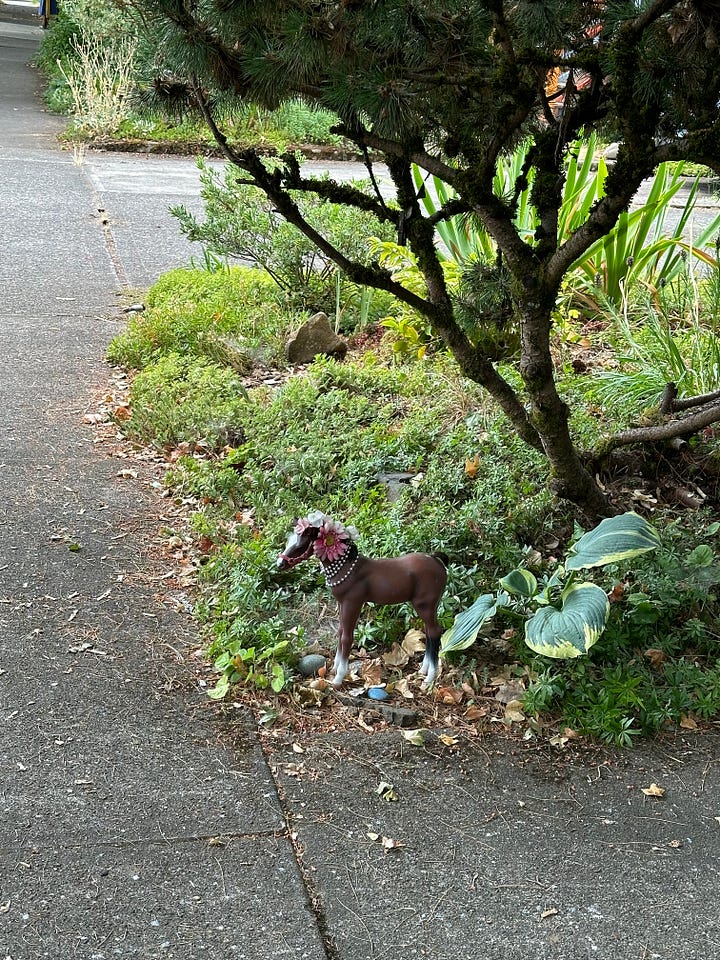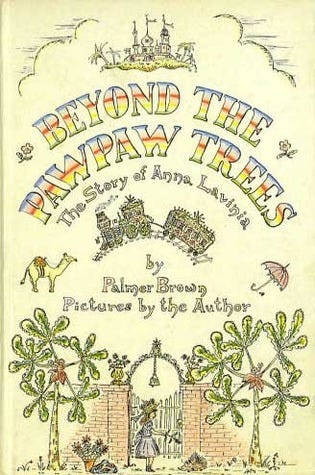Check in
Rapture
There is a pleasure in the pathless woods,
There is a rapture on the lonely shore,
There is society where none intrudes,
By the deep sea, and music in its roar . . .
George Gordon, Lord Byron, Childe Harold’s PilgrimageRapture may be the best of emotions, the echo of our beating heart. We can, and often do, find rapture on our own. That’s what Byron felt at the seashore.
But rapture is also a powerful gift, thrust upon us when unaware. Our eyes are suddenly opened, our hearts engaged, our minds entwined with Spirit. We don’t seek rapture; it seeks us, at times when our souls need strong nourishment.
It often takes little to spur rapture. A hint of salt in the sea air. The smell of my mother’s perfume. The mournful whistle of a distant train.
Books can stir rapture. Scent of dry paper. Crumbling book jackets. Crumbs in the creases; someone snacked while reading. You just don’t get such sensuous experiences reading on a Kindle, but still there’s the rapture of the words, the thoughts, the images. And above all, there is rapture in knowing that you share these things with a vast band of other readers.
So although you are alone when you read, the other readers are around you. Generations of them, if it is an old book. You set the book aside, close your eyes, breathe in the rapture of your experience. How can we not read and read and read?
Writing, too, can be rapturous. Your huddled masses of thoughts begin life laid out like wounded soldiers. Pick through them, do triage. Toss every third word and rapture will follow. I try to do that, if only metaphorically. I mean, maybe I take out every fifth word.
Rapture is contagious. It places you in the world of fellow-travelers, those who cherish what is precious to you. Others who have found truth and purpose in the books you love. Others who like the colors that move you: purple walls and green caterpillars and washes of yellow fall leaves. Others who count the stars and yearn for the borealis and celebrate winter.
Let your memories of such rapture shine as a beacon in times that are stormy.
Grab the fiery tail
Rapture in the morning Wrapped up in the smell of coffee The little rituals: washing, dressing— How you love the colors your wear! Rapture at midday You are in the garden, You are in the market, The colors, the blind earth! Rapture chases you, Sneaking past your thinking. Winding through your essence Shooting sparks of love. When you’re open, rapture Comes in without knocking; Grab its fiery tail, the rest Is yours without the asking.
Street horses
Little plastic horses are a thing in Portland. Back in 2005, someone had the bright idea of attaching plastic toy horses to the metal hitching rings that in the day were installed for real horses and can still be found embedded in curbs throughout the city.
It used to be that as curbs were rebuilt, the historic rings were discarded. Now, though, the city requires them to be replaced.
Many folks find the little horse project “magical” and “whimsical.” But I take a different and contrarian view. My adjective for those little plastic horses would be “dorky.”
Most of the toy horses have been stolen or removed, but I found one recently in front of the house of my neighbors who maintain year-long Halloween decorations. Their horse, fittingly, is a skeleton.
Not many horses remain attached to little metal rings. I have found some lurking loose around the neighborhood.


Full-size horse
The week before Thanksgiving, while riding the 75 (César Chávez) bus, I spied a really big horse standing guard over a lawn on Southeast 32 Avenue in Milwaukie. The horse has good company: a banner touting Native American Heritage Month and a couple of turkeys on poles.

Beyond the Pawpaw Trees
I promised last week to introduce you to a trippy children’s book. Beyond the Pawpaw Trees, by Palmer Brown, was published by Harper & Brothers, New York, in 1954.


This book teems with improbable situations, events and images. As the book opens, Anna Lavinia’s father has been away chasing rainbows for two years while she and her mother put up jar after jar of pawpaw jelly.
On a day when the sky is lavender—Anna Lavinia knows that lavender sky days are special—her mother tells her it is time to visit her aunt.
Carrying a camellia bush and a carpet bag in which her cat has stowed away, Anna Lavinia boards a train, which at one point strands the engineer and continues on by itself until it reaches the horizon, where the tracks converge and the poor train can’t go any farther.
This is the sort of craziness that makes this book so endearing—and unforgettable. Adventure follows adventure, all of them completely original and unexpected. A fat woman on the train give Anna Lavinia a tea cozy that comes in handy later. Anna Lavinia finds she can sail gently down the face of a cliff. (She tests it by throwing out a jar of pawpaw jelly and seeing it fall slowly.) She even has time to straighten the falling camellia bush as she passes it.
She lands in a desert, where a pasha gives her a camel and a parrot.
Finally, she finds her Aunt Sophia Maria living on mirage. Over dinner, her aunt imparts a piece wisdom I’ve never forgotten: “If a thing is good, it is always better with whipped cream.”
The story ends after Anna Lavinia is reunited with her father. And he really does have a stash of gold. He found it at the end of the rainbows he’d been chasing.
Gone from the library
I first read Beyond the Pawpaw Trees in the1970s. I got a copy from Multnomah County Library. But when I went back to read it again, it had been deaccessioned, taken off the shelves, discarded in favor of newer books with more readers.
For years, I searched for a copy of Beyond the Pawpaw Trees, but it was rare and copies went for hundreds of dollars.
It was republished in 2011 by NYR Children’s Collection and can be ordered from your favorite bookseller, which I hope is not Amazon. Also, the Portland State University library has a copy of the original edition. Thanks to a recent relaxing of circulation rules, I was able to check it out on my Multnomah County Library card.
Sonnet
I’m still struggling with sonnets. I like the discipline of iambic pentameter, four four-line stanzas and a couplet at the end. I don’t like having to come up with rhymes. English doesn’t have enough words that rhyme.
Half sonnet*
The words, the rhythm as the form requires. Pearls on a necklace, threaded one by one Each syllable pearl-round as my desires Crochet the corners and the doily’s done. A cat, a frog, a marmot at a picnic A silly scene to sketch with purple pen. Such images require a certain flick, A prick, a spark—imagination, when The world turns upside down and shakes its tail, The moon is covered with a cheesy load, You’re running up a mountain when lungs fail And there you lie, expired on the road. You wonder if the rhyme is really worth it Well, here’s a secret: I don’t give a fig.
*I call this only a "half sonnet" because, as you may have noticed, I gave up rhyming at the end.
Check out
Pattern study
So much is going on in this photo. I love the grid of the utility wires, the ragged line of poles. That elm tree is maybe 120 feet tall, and it had just the day before finally divested itself of its last stubborn yellow leaves. How gorgeous are the sprays of branches, now splayed out for us in winter glory!
—30—
If you enjoyed this post, hit the ♡ to let me know.
Every time someone likes a post, I get an email notification; that gives me a chance to remember and cherish that individual.







The tiny horses are enjoyable and point to what is relatively recent history. Our family home on Northeast 24th Avenue, built in 1908 as the first house on the street, has one still. Our older daughter lives there now.
I will be thinking of rapture (hoping it finds me) and those tiny horses hitched to those old rings all day today! thx, Fran.